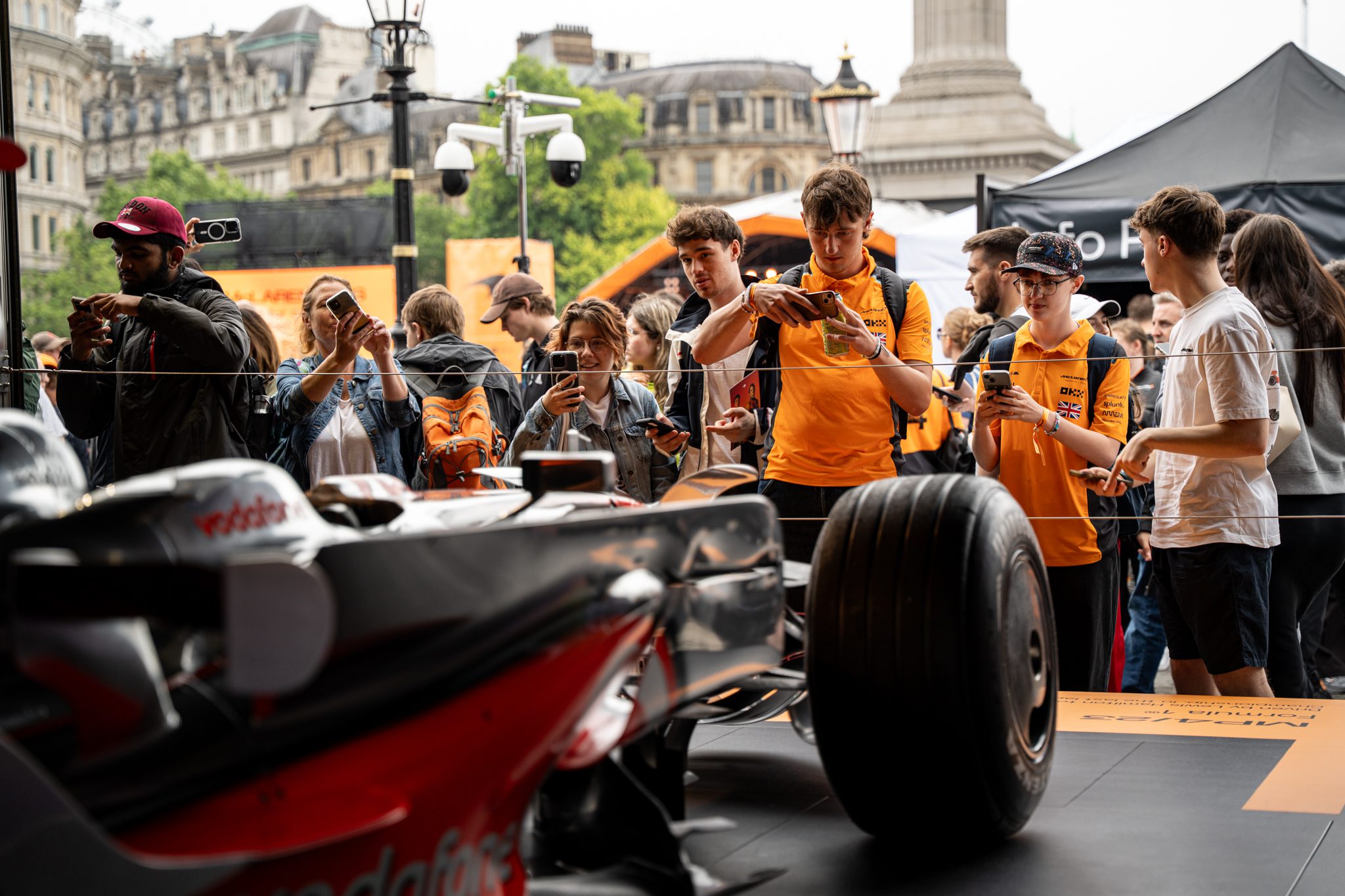We’re entering a golden age of experiential marketing, with sport at its beating heart. What began in the 1990s as free samples at shopping centres and light-touch festival activations has grown into a $128 billion global industry (2024). Today, experiences aren’t the side show to marketing campaigns they are the campaign, driving loyalty, identity and cultural relevance at a scale traditional advertising can’t match.
The shift is clear in the numbers. In the UK, despite economic challenges in the first half of the year, the Q2 2025 Bellwether data revealed marketing budgets were still up by 3.9%. Globally, experiential spend is forecast to keep climbing, with the UK’s ‘experience economy’ alone projected to grow another 2.6% annually by 2027 (Barclays Consumer Spend, 2024). Consumers are protecting budgets for live events and shared experiences even when other discretionary spending is squeezed – a signal that moments matter more than material possessions.
And nowhere is this evolution clearer than in the world of sport.
Sport has always carried unmatched power to unite people through passion, rivalry and community. But in today’s fragmented media landscape, with younger audiences demanding authenticity and ever sceptical of corporate messaging, brands can no longer rely on simple logo placement. To truly stand out, they must build immersive fan-first ecosystems that go beyond the game itself, blending live spectacle, digital storytelling and phygital engagement to fuel loyalty. From Heineken’s community-driven UCL viewing parties to Nike’s House of Innovation, sport has become the launchpad for the next era of brand experience.
In the wake of a summer packed with global sporting spectacles from the Lionesses historic Euros victory, record ticket sales for the Women’s Rugby World Cup 2025, and next year’s FIFA World Cup, the momentum is only accelerating. We are entering a golden age of sports-led brand experiences.
Few partnerships illustrate this better than McLaren and Mastercard who are placing their fans firmly in pole position. Starting from the 2026 season, the McLaren F1 team will be rebranded as the McLaren Mastercard Formula 1 Team and at the heart of this is, Team Priceless – a curated fan-first programme offering exclusive, high-impact experiences. From driver meet-and-greets, track hot laps and behind the scenes access, they’re elevating the campaign far beyond traditional sponsorship. In McLaren CEO, Zak Browns own words, ‘There is no one more important to us than our awesome fans’.
That fan-first approach is already visible, witnessing their investment into experiential earlier this year in London as they transformed the iconic Trafalgar Square into a high-octane hub of fandom ahead of the 2025 British Grand Prix.
Working with Velocity Experience (TBA’s sister motorsport brand experience agency), fans began queuing in the early hours, filling the square with a buzz usually reserved for the circuit. McLaren drivers Lando Norris and Oscar Piastri, alongside team figures including Zac Brown, took to the stage for live Q&As and surprise appearances, delivering unforgettable moments for fans of all ages.
Beyond this, there were interactions at all touchpoints. The square came alive with racing simulators, garage tours, classic McLaren vehicles, merch drops and a fully immersive atmosphere that brought fans closer to the action than ever before. Open to old and new fans alike, it was a full-body tribute to the McLaren fandom that built emotional capital, social currency, and loyalty in one seamless experience.
At TBA, we‘ve also embraced this shift, working with Lenovo and Formula 1 to deliver a world-first moment in brand storytelling: A towering projection on London’s iconic Walkie-Talkie.
Through the #RacetoCreate platform powered by intel, 525ft high projections of bespoke F1 car designs lit up the building. Alongside this, street-level activations, and a VIP rooftop party with influencers and F1 personalities brought the experience to life.
With 21 million social reach, 126 million earned media impressions and 100% positive sentiment, the results were tangible.
As the industry matures, experiential has evolved into end-to-end thinking, intersecting with CX design, sponsorship strategy, employee engagement and earned media. From the choreography of a fan’s entire match-day journey to the logistics of a DPD driver delivering a Zara order, brands are waking up to the idea that every moment matters.
And this evolution brings two big advantages.
- Experiential gets seamlessly woven into wider campaigns, grounding them in the all-important whys, what’s and how’s of the customer journey.
- Human truths and insights emerge that aren’t visible within siloed channels. We uncover overlooked gaps, touchpoints and emotional cues, creating new opportunities for brands to show up meaningfully, beyond simply communicating.
So what does this tell us? It tells us that brands should be preparing for the 2026 stage now. With the Winter Olympics, the men’s FIFA World Cup and major tentpole moments across rugby, cricket and golf, sports alone will once again dominate the global cultural calendar. These events won’t just be about what happens on the pitch, they will be about how brands build worlds and fandom, using phygital activations and data-driven personalisation to connect with audiences in new ways.
The brands that win will be those already laying the groundwork today. Experiential is no longer just a moment in time. It’s the scaffolding on which brands can build authentic, lasting relationships – turning audiences into fans, and moments into meaning.
The coming year is not just another cycle of sponsorship; it’s the proving ground for the next era of sport-led experiential marketing.
Written by, Jonathan Terry, Managing Director


